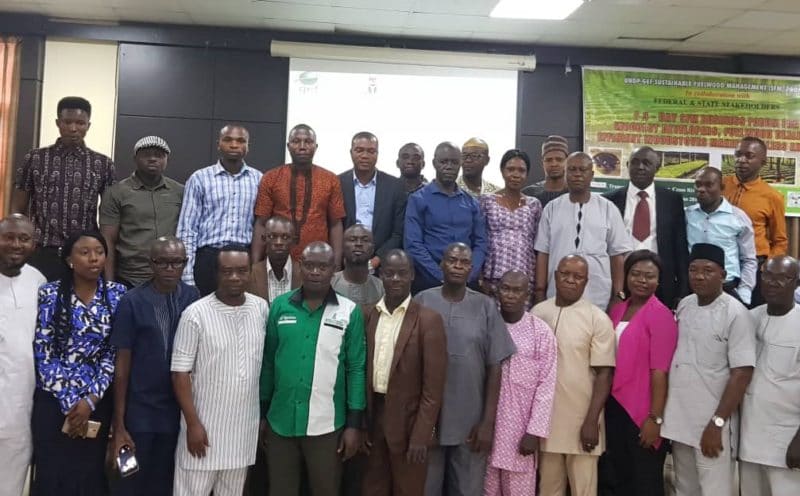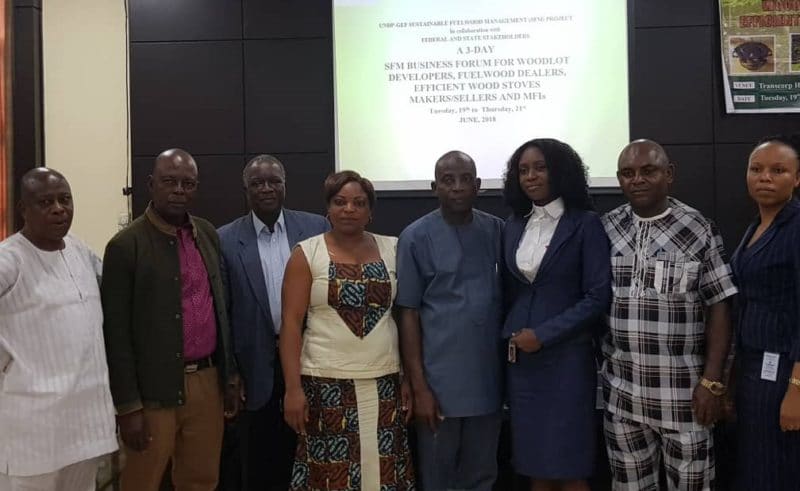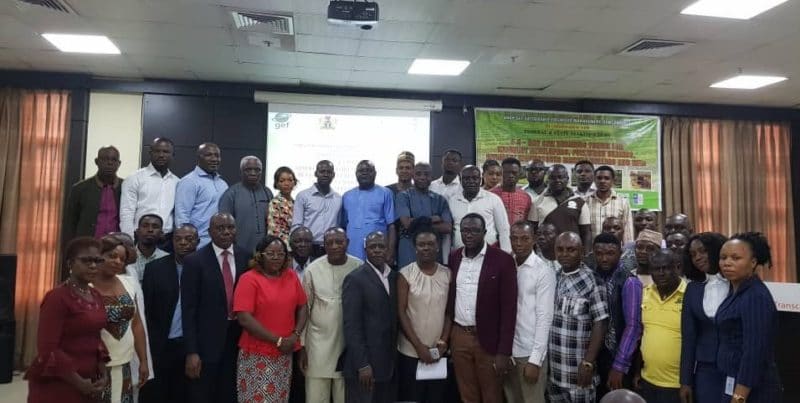A cross-section of stakeholders who met in Calabar in Cross River State to explore inherent management opportunities have resolved to sustainably utilise fuel wood in order to add value to the commodity and ensure a healthy and pollution-free environment.

At the Sustainable Fuel Wood Management (SFM) Business Forum for Woodlot Developers, Fuelwood Dealers, Efficient Woodstoves Makers and Sellers and MFIs held from Tuesday, June 19 to Thursday, June 21, 2018, fuelwood value chain actors listed their strategies to include preservation of forest resources, production of a variety of environment-friendly and energy efficient stoves, effective marketing of their products, and the execution of an active business plan.
The forum held courtesy of the “Sustainable Fuel Wood Management (SFM) in Nigeria”, a five-year (2017-2022) project being implemented by the Global Environment Facility (GEF) through the United Nations Development Programme (UNDP), the Energy Commission of Nigeria (ECN), the Federal Ministry of Environment and other supporting stakeholders.
The three-day forum, according to the promoters of the project, created an opportunity for the players to interact and know themselves and exchange experiences, develop skills, and share knowledge and ideas on innovative business and financing models.
“The event focused on the: establishment of smallholder farmers-managed woodlot; establishment of sustainable fuel wood markets; promotion of energy-efficient woodstoves through market based approaches with community-based micro-credits to incentivise woodlot owners and end-users of cookstoves,” said Okon Ekpenyong, the SFM Project Team Leader and National Coordinator.
A consultant, Dr. D. O. Ladipo, in his presentation that explored the establishment of woodlots as a business enterprise, advised the practitioners to discuss business plan with support of the state coordinator and a microfinance bank.
“In the case of community woodlot, intensive discussions amongst members must have taken place. Remember to include youths and female members of community to have adequate balance on all fronts,” he said.
While listing tree species selection for the project in Delta, Cross River and Kaduna states, Dr Ladipo emphasised that location, design and components of the tree are to be considered when setting up a nursery.
He singled out the Gmelina arborea as an example of a tree species suitable for fuelwood/woodlot planting because, according to him, it is fast growing, can be coppiced easily and several times, yields high volume and has high wood calorific value.
In a presentation titled: “Business and Financing Model for Efficient Woodstoves /Woodlot in Nigeria”, Sir Daniel Ugbama of the Association of Non-Bank Microfinance Institutions of Nigeria (ANMFIN), noted that experience would be leveraged with small groups in trading and crop production financing to woodstove and woodlot financing.
Efficient woodstove, he said, implied the use of woodstoves that emit low smoke or not at all, and that the consumption of the wood is within the reach of an average family living within N500 income daily.
Woodlot, he added, involves the planting and management of trees in groups in an efficient way so that wood is extracted for the purpose of fuel particularly for the low income earners.
“Poverty alleviation will radically receive a boost if efficient woodstoves are encouraged and wood lot practice for fuel is evolved in Nigeria. Micro finance functions better in an environment where all stakeholders are up to their own responsibility, bringing a collective energy for the purpose of providing the necessary reliefs for the low income earner,” said Ugbama.
Speaking on charcoal production and strategies to enhance its sustainability, Ruth Akagu of SRPO BirdLife/CEPF RIT believes that, for charcoal production to be a sustainable enterprise, practitioners should:
- Cultivate in local level institutions a greater and keen interest in the management of forests
- Establish a conducive policy environment for local level institutions to manage forests
- Facilitate the development of local rules and guidelines for managing forests for charcoal production
- Improve the processes along the production chain to minimise waste
- A paradigm shift from woody biomass to biomass waste
- Step up research on adoption and use of alternative feedstock or biomass waste for charcoal production e.g., saw dust, bamboo. Anything organic can be converted into charcoal briquettes.


